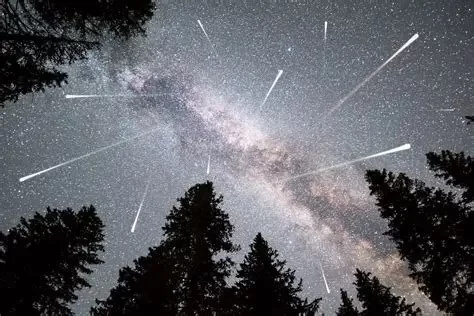
Chasing Fire in the Sky: A Traveler’s 2025 Guide
- Why-2025-Meteor-Showers-Belong-on-Your-Travel-List
- How-to-Plan-for-The-Top-Meteor-Showers-and-Where-to-See-Them-in-the-US-in-2025
- Dark-Sky-Places-and-Scenic-Basecamps-Across-the-US
- Month-by-Month-Highlights-and-Story-Driven-Itineraries
- Gear-Technique-and-Safety-That-Improve-Your-View
- Family-Friendly-Nights-and-First-Time-Observer-Tips
- Booking-Strategy-and-Weather-Backups
- Start-Your-Sky-Quest-with-Refined-Travel
1. Why 2025 Meteor Showers Belong on Your Travel List
Ask any night-sky fan and they’ll tell you: few moments feel as alive as lying under a dark dome while the sky scribbles light. Planning around The Top Meteor Showers and Where to See Them in the US in 2025 turns a quick camping trip into a story you retell for years. The magic is part science, part setting—choose the right night and the right place, and the heavens do the rest.
1.1 What Counts as “Top”
Consistency, number of meteors at peak, and visibility from US latitudes. That short list puts Quadrantids (early January), Lyrids (late April), Eta Aquariids (early May, better in the South), Perseids (mid-August), Draconids (early October, unpredictable but dramatic when active), Orionids (late October), Leonids (mid-November), Geminids (mid-December), and Ursids (late December) on your radar.
1.2 Why Travel for It
Dark skies are everything. A quiet desert pullout or a high alpine meadow can double what you see compared to suburbia. Add campfire coffee, and the show feels personal.
2. How to Plan for The Top Meteor Showers and Where to See Them in the US in 2025
Build your trip backward from the predicted peak nights. Then cross-check two variables: cloud climatology and local light pollution. Arrive a day early to scout horizons and wind exposure. Keep your plan flexible by choosing regions with multiple viewpoints within a short drive—desert basins, high mesas, and coastal dunes all behave differently with weather.
2.1 Practical Timing
Meteors spike after local midnight as your side of Earth faces the debris stream. Pre-dawn often beats early evening. Bring layers; desert wind and alpine chill can sneak up on even seasoned travelers.
2.2 The Shortlist of Peaks (2025)
Quadrantids: Jan 3–4 • Lyrids: Apr 21–22 • Eta Aquariids: May 5–6 • Perseids: Aug 12–13 • Draconids: Oct 8–9 • Orionids: Oct 21–22 • Leonids: Nov 17–18 • Geminids: Dec 13–14 • Ursids: Dec 22–23.
3. Dark-Sky Places and Scenic Basecamps Across the US
You’re not just checking a box—you’re crafting a backdrop. Here are landscapes that elevate The Top Meteor Showers and Where to See Them in the US in 2025 from “cool” to “unforgettable.”
3.1 Desert Cathedrals of the Southwest
Big Bend (TX), Chaco & Bisti (NM), Grand Staircase & Capitol Reef (UT), Death Valley (CA). Dry air, huge horizons, Milky Way like chalk on velvet. Choose pullouts away from paved loops to dodge car lights.
3.2 Mountains and High Plains
Great Basin (NV), Medicine Bow (WY), San Juan Skyway (CO), Beartooth Plateau (MT). Altitude trims atmospheric haze; bring a windproof layer and a thermos.
3.3 Forests, Shores, and Eastern Gems
Cherry Springs (PA), Acadia backcountry (ME), Outer Banks (NC), Ocala prairie edges (FL). Atlantic humidity can soften contrast—aim for post-front nights with offshore breezes.
3.4 Pacific Edges
Oregon high desert, Northern California coast clearings, Hawaii’s high slopes. Coastal fog dances; mobility is your superpower—keep inland alternates in your pocket.
4. Month-by-Month Highlights and Story-Driven Itineraries
Here’s how real travelers turn a peak night into a full-bodied trip.
4.1 January—Quadrantids in Nevada’s Great Basin
We parked on the shoulder near sagebrush flats—no cell bars, all the stars. The temperature snapped at our gloves, but every minute or two the sky cracked with white needles. Breakfast was coffee over a camp stove and pink light pooling over the Snake Range.
4.2 April—Lyrids over the Blue Ridge
A family spread quilts on a grassy turnout off the Blue Ridge Parkway. Fireflies joined the count like tiny extras. The kids made a game out of tracing meteor paths with whispered “oohs” so they wouldn’t miss the next one.
4.3 May—Eta Aquariids from the Gulf Coast
Pre-dawn, toes in cool sand, a slow Atlantic breeze. Southern latitudes see more Eta Aquariids, and that paid off: long, fast streaks skimming low over the water like stones.
4.4 August—Perseids in Utah’s High Desert
A dry wash became our lounge: folding chairs, a cooler, and a speaker set to near silent. Perseids are the crowd-pleaser for a reason—steady rates, warm air, and laughter that carries between streaks.
4.5 October—Draconids as a Wildcard in the Badlands
Draconids don’t always roar, but when they do, it’s sudden. We watched the northwestern sky where Draco curls and got a short burst that felt like confetti over moonscape buttes.
4.6 December—Geminids in West Texas
Two sleeping bags zipped together, pecan pie leftovers in the cooler (priorities). The Geminids’ bright, sometimes color-tinted meteors felt like holiday lights hung from infinity.
5. Gear, Technique, and Safety That Improve Your View
You don’t need much—just a plan and patience. Still, a few upgrades turn a good night into a great one.
5.1 Comfort and Optics
Reclining chair or thick pad, beanie, light gloves even in summer deserts, red-light headlamp, and a wide-neck thermos. Binoculars won’t help with meteors, but they’re perfect for Milky Way starfields between streaks.
5.2 Camera Basics
Manual mode, 14–24mm lens if you have one, 10–20s exposures at high ISO, interval timer for unattended sequences. Compose away from roads; meteors love dark corners of the frame.
5.3 Safety
Tell someone your plan, track wind and wildfire conditions, and pack extra water. In popular parks, pick secondary pullouts to avoid headlights and crowds.
6. Family-Friendly Nights and First-Time Observer Tips
Turn waiting into wonder: meteor bingo for kids, hot chocolate, and a two-hour window centered on the expected peak. Remind newcomers that patience is part of the ritual—then watch their first “wow” ignite the night.
6.1 Reading the Sky
Find the radiant (the constellation where meteors appear to fan out) but look 40–60° away for longer, dramatic trails. Your eyes are better than any app after 20 minutes of dark adaptation.
6.2 Etiquette
Kill white lights, keep voices low, and share space. The sky belongs to everyone; kindness makes the show better.
7. Booking Strategy and Weather Backups
Meteor season competes with leaf-peeping, summer road trips, and holiday breaks. Reserve stays early, but keep refundable options. Favor regions with alternate microclimates: desert vs. mountain, inland vs. coast.
7.1 Sample US Pairings
Perseids: Southern Utah base with Page, AZ as backup. Geminids: West Texas with Guadalupe Mountains as plan B. Lyrids: Shenandoah with Highland County farm stays as a clear-sky escape valve.
7.2 Local Rules
Night-use areas vary by park and season. Check gate hours, shoulder-parking rules, and campfire restrictions before you commit.
8. Start Your Sky Quest with Refined Travel
If your bucket list now reads The Top Meteor Showers and Where to See Them in the US in 2025, you’re already halfway there. Map your dates, choose a region with two or three sky-friendly bases, and pack like the night matters. For tailored lodging near dark skies, private guides, and last-mile logistics, plan with 【Refined Travel】. Want more detail on the exact peaks, local access, and weather patterns for your week? Start your custom itinerary with 【Refined Travel】 and let the sky do the rest.

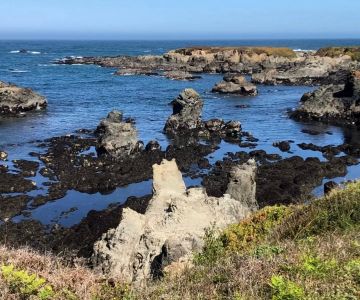

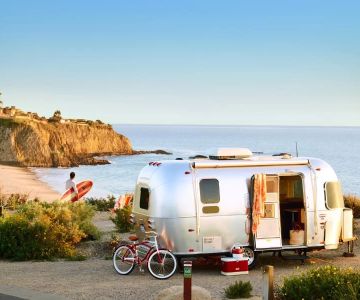


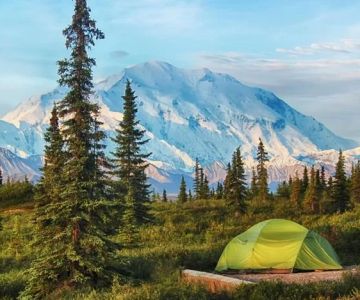
 Windmill RV Park4.0 (66 reviews)
Windmill RV Park4.0 (66 reviews)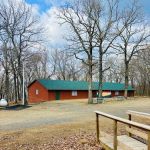 Fort Phoenix5.0 (1 reviews)
Fort Phoenix5.0 (1 reviews) RIVERS 4 LLC RV PARK5.0 (3 reviews)
RIVERS 4 LLC RV PARK5.0 (3 reviews) Spring Lake Park4.0 (334 reviews)
Spring Lake Park4.0 (334 reviews) Butler / Mohican KOA Journey4.0 (254 reviews)
Butler / Mohican KOA Journey4.0 (254 reviews) Woodbury Meadows4.0 (21 reviews)
Woodbury Meadows4.0 (21 reviews) Exclusive Travel Packages for First-Class Travelers: A Guide to Luxury Vacations
Exclusive Travel Packages for First-Class Travelers: A Guide to Luxury Vacations Refined Travel Experiences in Southeast Asia: Explore Luxury & Unique Destinations
Refined Travel Experiences in Southeast Asia: Explore Luxury & Unique Destinations How to Make the Most of Luxury Vacation Deals: Expert Tips for Savvy Travelers
How to Make the Most of Luxury Vacation Deals: Expert Tips for Savvy Travelers How to Enjoy a Refined Travel Experience in the Mountains
How to Enjoy a Refined Travel Experience in the Mountains Refined Travel Itineraries for Art and Culture Lovers: Explore the World of Art and History
Refined Travel Itineraries for Art and Culture Lovers: Explore the World of Art and History Most Luxurious Destinations for Honeymooners: Top Spots for Romance and Luxury
Most Luxurious Destinations for Honeymooners: Top Spots for Romance and Luxury